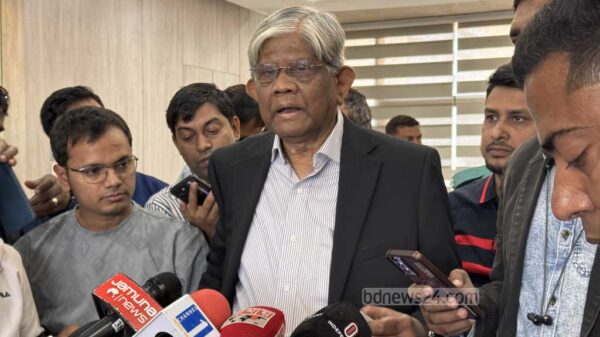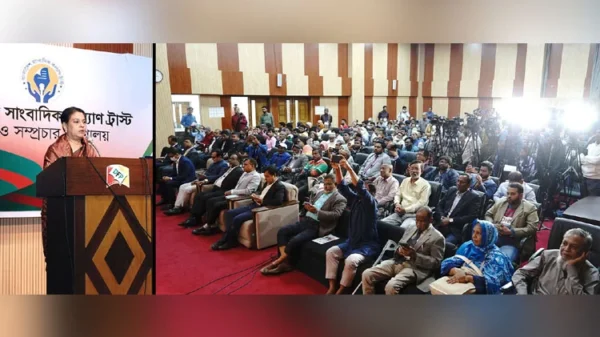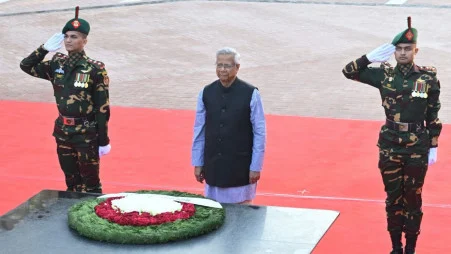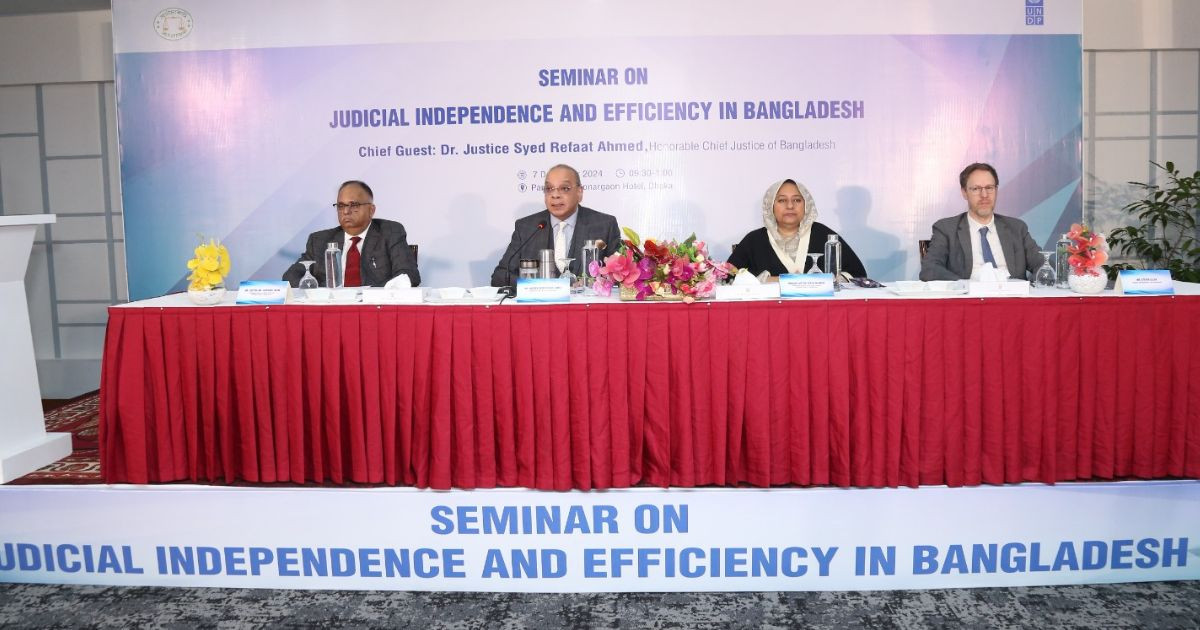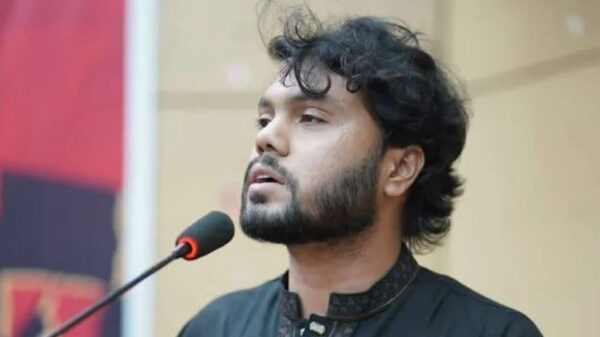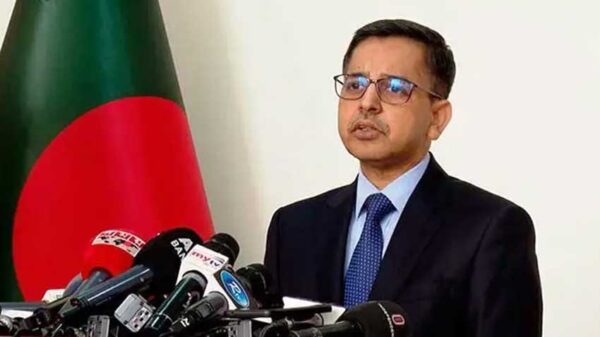Staff Reporter:
Chief Justice (CJ) Syed Refaat Ahmed has called for delivering justice to every corner of the country, without limiting it to the courtrooms.
Quoting the famous words ‘Justice delayed is justice denied,’ he underscored the urgency of addressing case backlogs and procedural delays in the country.
He said that case backlogs and procedural delays could undermine public trust in the judiciary.
The chief justice was addressing as the chief guest at a seminar titled ‘Judicial Independence and Efficiency in Bangladesh’ at a hotel in Dhaka on Saturday.
The seminar was jointly organised by the Bangladesh Supreme Court and UNDP (United Nations Development Programme).
UNDP Representative in Bangladesh Stefan Liller delivered the welcome speech, while judge of Appellate Division of the Supreme Court Md Ashfaqul Islam spoke as a special guest at the programme.
Judges of the High Court Division, district-level judges, officials from the Supreme Court, Ministry of Law, Judicial Administration Training Institute, Bangladesh Judicial Service Commission and the Law Commission attended the event.
Syed Refaat Ahmed, in his written speech, said, “The focus of all our efforts is to create a judiciary that serves the people. Justice must not be limited to the courtrooms in major cities and towns. It must be reached in every corner of the country. To achieve this, we are committed to ensuring justice for all by expanding legal aid services, building capacity, and overcoming socio-economic barriers.”
The judiciary must not only resolve disputes but also uphold principles of fairness, equality and dignity, he added.
Highlighting his vision of an accountable judiciary that ensures impartiality for each litigant, the chief justice said, “I believe that a people-centric judiciary is a system that not only judges but also establishes rights. It educates citizens about their rights, provides them with acceptable services, and builds trust through transparency and fairness. This vision drives us every day and will determine the future judicial system.”
“I envision a judiciary that bridges the gap between the legal system and the people it serves, making justice more accessible through technology, legal aid, and procedural reforms,” he added further.
Syed Refaat Ahmed emphasised the need to strengthen the independence of the judiciary and enhance its efficiency.
Describing judicial independence and efficiency as the twin pillars, he said, “Independence ensures that justice is free from undue influence, while efficiency guarantees it is timely and accessible. Together, they form the foundation of a judiciary that is not only fair but also trusted by the people it serves.”








